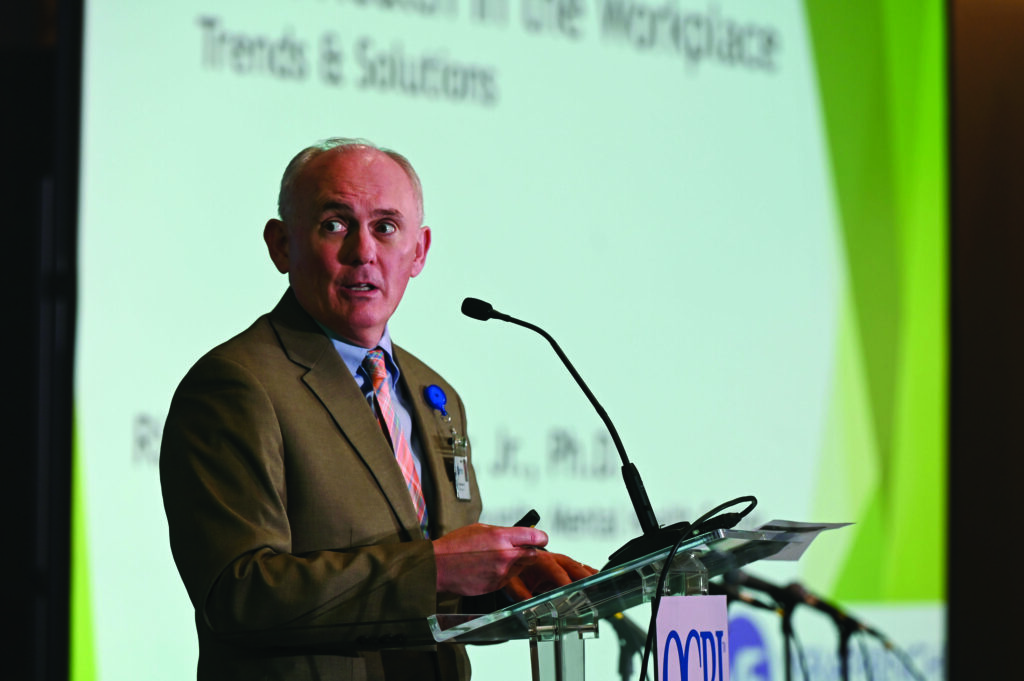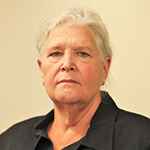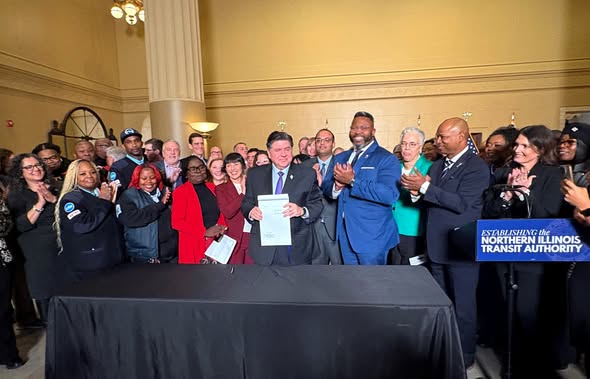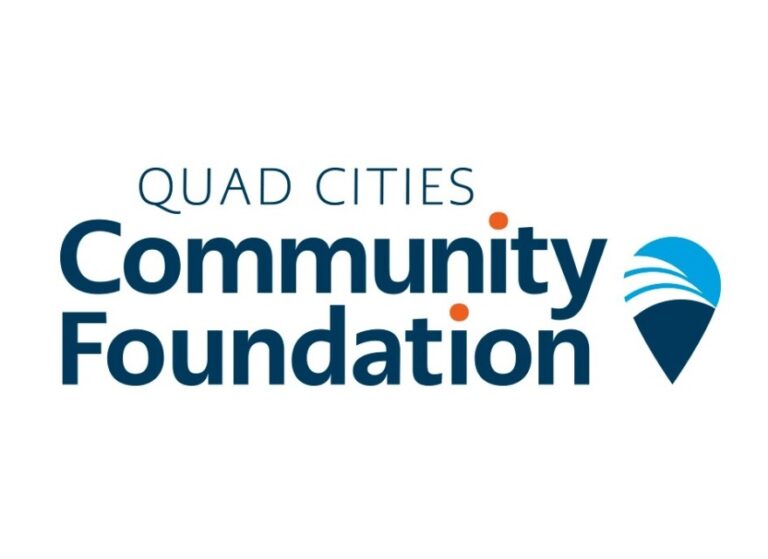From sabbaticals to biometric testing and healthy choices linked to health insurance discounts, to inviting bike paths, Quad Cities employers are supporting and incentivizing employee wellness and wellbeing.
Five Quad Cities human resources leaders shared those program details and others during the Workplace Wellness in Action panel discussion at the second annual QCBJ Health Care Symposium.
The Wednesday, Feb. 5, conversation at the Quad Cities Waterfront Convention Center in Bettendorf was emceed by KWQC Anchor Marcia Lense. Panelists were: Bobbi Jo Cox, director of HR, McCarthy-Bush Corporation; Matthew DeBisschop, senior vice president, resources and government affairs, Ascentra Credit Union; Jean Hansen, senior benefits specialist, QCR Holdings; Morgan Milner, assistant general counsel at Modern Woodmen of America; and Kathleen Richlen, human resources director, City of Bettendorf.
For Ms. Cox, creating a diversified wellness program was essential to accommodate a workforce that increases from a few hundred employees to more than 500 during a construction season.
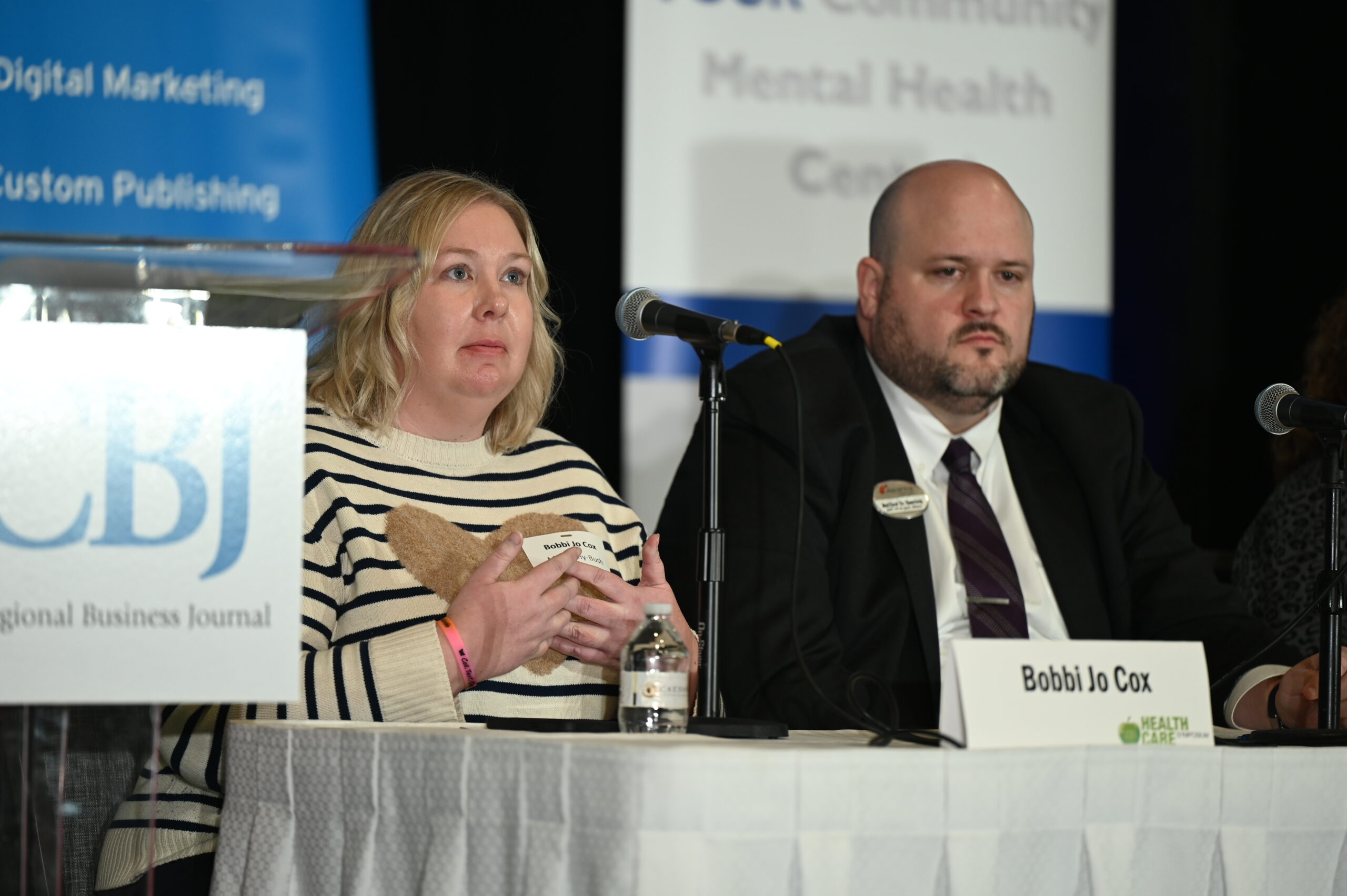
“Our company is a fifth-generation family-owned company who is very excited about wellness,” she said. Among the events it sponsors is the Quad Cities annual McCarthy Bush Turkey Trot. The company also reimburses employees for such things as gym and park district memberships. It also helps cover entry fees for races and other events. The key, she said, is to “keep all different employees engaged.”
Mr. DeBisschop said the 75-year-old Ascentra has a wellness program designed to be “more beneficial for the employee then it is for the organization and by doing that over time it becomes more beneficial for the organization.”
He also quoted the findings of a study shared at the symposium by Vera French CEO Dr. Rich Whitaker that said 31% of workers surveyed believed their workplace caused issues with their mental health, while 38% said their workplace was contributing to their mental wellbeing.
“At the bare minimum, the very least thing we can do is we have to be part of that 38% where when people come to work this is a safe place for them,” Mr. DeBisschop said. “This place makes things better and does not contribute to the chaos that people are experiencing in the world right now.”
QCR Holdings’ Ms. Hanson said: ”Our interest as benefits specialists is really a well-rounded health and wellness incentive. It’s not just the physical; it’s not just the mental and the emotional. It’s the financial, it’s the social, it’s the professional and career development.”
The goal, she said, is “to support our people as a whole.” The Moline-based QCR’s strategic plan also makes employees “our first priority and that makes my job a little bit easier because it makes it easier for me to support them throughout whatever life can bring.” Among benefit highlights for Quad City Bank & Trust’s parent company is a sabbatical program. “Because it not only rewards our employees for their dedicated years of service, beginning at just 10 years, but it also gives them the opportunity to reset, or to give back to the community or to use that time to their advantage in the way that they choose.”
Mr. Milner spent the past several years spearheading an effort by the Rock Island-based fraternal benefits organization to make Modern Woodmen a Bicycle Friendly Business. His goal in participating in an initiative by the League of American Bicyclists was to “make Modern Woodmen friendlier for folks to cycle to work as part of their commute or for recreation.”
The three-part initiative included providing:
- Facilities that would bring the community of cyclists together and create an environment where people wanted to get together and go out for a bike ride after work.
- An educational component. “For a lot of folks, maybe they haven’t been on their bicycle since they were young children.”
- Resources “so that biking to work or maybe going on an afternoon bike ride wasn’t so scary.”
Bettendorf’s wellness program began nine years ago with an employee health committee, Ms. Richlen said. Steps include partnering with vendors for health food solutions, bringing in experts to talk to employees about wellness. Many of the participating employees serve as advocates of the program which includes a voluntary 25% wellness discount for employees who participate in it and meet specific wellness benchmarks. To participate, employees must do biometric screenings paid for by the city and do health risk assessments. They also must participate in physical activities and volunteer in their community.
Despite those requirements, the program is a popular one.
“We probably have at least 75% participation out of 260 full-time employees,” Ms. Richlen added.

